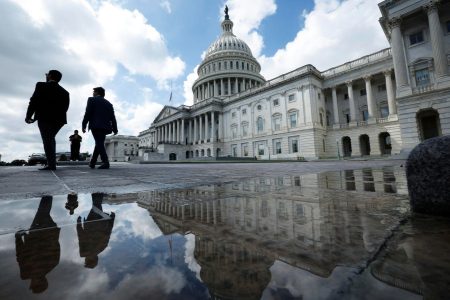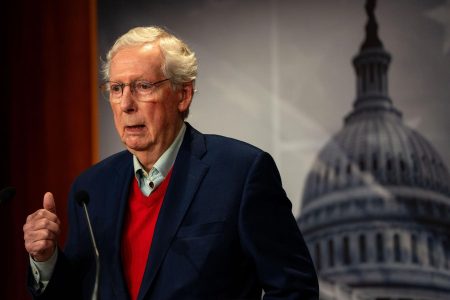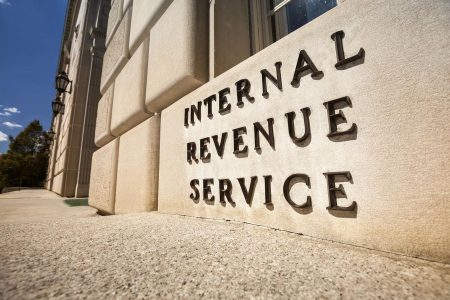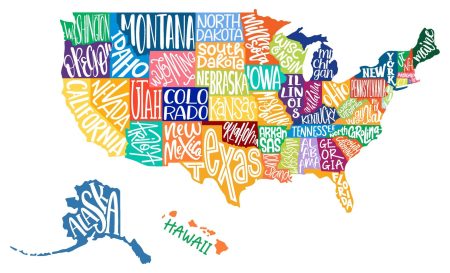Wherever you are reading this, there’s a 50% chance you’re living through an election year. Globally speaking, there’s so much voting scheduled for 2024 that Time magazine aptly referred to it as the “ultimate election year,” noting that voters in 64 countries (plus the EU) will be headed to the ballot box. The magazine’s editors reckon that translates to 49% of the global population, and the number has increased since they published that story.
Elections Around the World
India
The calendar year is not yet half over and we’ve already had major elections in India, the world’s most populous democracy, in which incumbent Prime Minister Narendra Modi secured a third term despite seeing his Bharatiya Janata Party (BJP) lose its majority position in Parliament. The party had been seeking a supermajority, which would have allowed it to promote a Hindu-nationalist government. Instead, it lost 63 seats, leaving it with a mere plurality and forcing it to form a coalition government with secular parties.
Modi benefited from India’s recent economic performance. The country reports an annual growth rate of 8.2%, the highest in the world. Modi’s next challenge is to spread the benefits of the growth wave across a broader segment of the population, especially those in rural agricultural communities.
The days following the election saw the BJP join with coalition partners to form the National Democratic Alliance. Modi has already announced that the pact’s priorities include increasing middle-class savings, which could take the form of a targeted reduction in personal income tax rates.
Currently, taxpayers earning less than INR 1.5 million (about $18,000) are taxed at marginal rates between 5 and 20%. The rate jumps to 30% for taxpayers in the next income bracket. The government may extend the preferred rates of the lower bracket to taxpayers earning above INR 1.5 million. We will learn more about possible rate and bracket adjustments when the coalition offers its federal budget plan in July.
Taiwan
Back in January, the year began with national elections in Taiwan, in which voters were tasked with selecting their next president and the composition of the Legislative Yuan. The defining issue of the election was the government’s stance regarding China, as it usually is. The sitting president, Tsai Ing-Wen of the Democratic Progressive Party, was first elected in 2016 when relations across the Taiwan Strait were less tense. She was term-limited and prevented from seeking the presidency for a third time. Among other things, Tsai is remembered for her hosting of a U.S. delegation in August 2022, which included then-Speaker of the House Nancy Pelosi.
Tsai’s former vice president, William Lai, claimed victory in the January 13 ballot, promoting a more defiant tone with Beijing regarding the island’s right to independence and self-governance. China immediately responded to Lai’s victory by announcing a diplomatic accord with the tiny Pacific island nation of Nauru, persuading it to break off formal diplomatic relations with Taiwan. China sharply criticized the governments of Singapore and the Philippines for congratulating Lai on his election victory.
Mexico
The result of Mexico’s presidential elections was announced June 2, with former Mexico City Mayor Claudia Sheinbaum Pardo winning 59% of the popular vote. Sheinbaum is the handpicked successor of current President Andrés Manuel López Obrador, of the leftist Moreno Party. Once inaugurated, she will become Mexico’s first female head of state. Her closest runner-up, Xóchitl Gálvez, is also female — though the election will be remembered mostly for the brutal violence that accompanied it. Beyond the office of the president, there were thousands of lesser federal, regional, and municipal positions being decided across Mexico. Among those contests, at least 34 candidates were assassinated during the run-up to the elections, and numerous other candidates were threatened with violence and chose to terminate their campaigns. Most of the violence is associated with local drug cartels.
One of Sheinbaum’s immediate challenges will be to get a grip on public spending, or to find a way to boost tax revenues. Mexico’s deficit as a share of GDP climbed from 4.3% to 5.9% during Obrador’s final year in office, driven by increased infrastructure spending. Sheinbaum supported that spending and has publicly stated that she has no current plans to raise taxes. Her hand may be forced if the deficit continues to grow and Mexico’s creditworthiness takes a hit.
South Africa
South Africa’s national and provincial elections results force the African National Congress to share power for the first time in its 30-year reign, reaching back to the end of the apartheid era. The Congress is not accustomed to sharing power with rival parties, but it will require assistance from the main opposition party, the Democratic Alliance, if it hopes to form a national unity government. The country’s constitution requires that Parliament select a president within 14 days of sitting after national elections. The country’s constitution requires that Parliament select a president within 14 days of sitting after national elections. On June 19 incumbent Cyril Ramaphosa was sworn in as president.
Russia
Nowhere was the election result more of a slam dunk than in Russia, where the incumbent (and apparent president-for-life) Vladimir Putin grabbed a fifth term. Putin was technically not unopposed, but his rivals presented no serious electoral threat — he claimed 88% of the vote. The one person who might have presented a viable challenge to Putin — lawyer, activist, and opposition figure Alexei Navalny — had conveniently died in a Siberian prison in February. Putin has now won five of Russia’s eight presidential elections, which is not a bad batting average.
European Parliament
In addition to their national elections, the 450 million citizens of the EU were eligible to take part in the pan-European elections that occur every five years. Voters across the 27-nation bloc went to the polls between June 6 and June 9 to select the 720 members of the European Parliament — the world’s only democratically elected transnational governing body.
I’ve taken a liking to the concept of having important elections take place over more than one day and include the span of an entire weekend. The EU elections began on Friday morning and concluded Sunday evening. How civilized. That said, the results proved to be mildly disruptive. Less so for Brussels, more so for France.
Overall, the centrists maintained their grip on power. The European People’s Party, a liberal-centrist coalition, won the largest number of seats (190), even expanding their representation. This makes it likely that Germany’s Ursula von der Leyen will retain her position as president of the European Commission. That assumes VDL, as she is known, will survive the Pfizergate controversy unscathed.
The centrists were not the biggest news, however. Coalitions of parties leaning further to the extremes enjoyed a strong showing, inspired by concerns over the economy, cultural identity, and immigration policy.
That was especially so in France, where the far-right basically clobbered the center-right. L’Europe Ensemble, the coalition aligned with President Emmanuel Macron’s Renaissance party, received just 14% of the vote — an embarrassingly low tally. The coalition aligned with Marine Le Pen’s Rassemblement National (RN), or “National Rally” party, won 31% of the vote. The results were similar in Germany, where the center-left coalition aligned with Chancellor Olaf Scholz’s Social Democratic Party finished in a lackluster third position, trailing both the center right Christian Democratic Union and the far-right Alternative for Germany party.
The RN’s 28-year-old European leader Jordan Bardella declared June 9 to be “day one” of the post-Macron era in French politics. Bardella is the kind of politician who spends more time making catchy TikTok videos than giving press conferences. His observable talent is an ability to communicate info-snippets that are easily sharable among young people via social media. That’s been enough to make him the it-boy of French politics and to land him a job in Brussels — where he will no doubt continue to circulate viral videos criticizing how things are done.
France
In France, the next presidential election will not occur until 2027, and Macron will not be on the ballot. He is term-limited, though he’s understandably obsessed with who will replace him. Macron fervently opposes seeing France veer to either the far-right or the far-left after he leaves office. He portrays any political reset as a needless step backward for his country’s forward progress.
Critics detect an element of legacy building in Macron’s determination that his government be followed by a like-minded centrist regime. During a recent speech at the Sorbonne, he warned that Europe could “die” if his policies are discontinued. In context, the death metaphor refers to the Fifth Republic displaying a shade less enthusiasm for European integration. It can also be read as a projection of self-aggrandizement, implying that Macron regards himself as the giver of European life.
Ego aside, the starkness of Macron’s language suggests a man on a mission. That mission took a peculiar twist June 9 when Macron announced that he was dissolving Parliament and calling for snap elections. All 577 seats in the National Assembly will be up for grabs.
This was Macron’s response to the far-right’s strong showing in the European elections. The term “snap” implies a sense of urgency, which is reflected in the forthcoming election schedule. The voting will take place in two rounds, on June 30 and July 7, with the next Parliament being sworn-in mid-July. That leaves candidates with only weeks to campaign. The electoral pace isn’t just fast — it’s mercurial.
The move is a calculated gamble. If the national vote parallels the trend of the recently concluded European elections, Macron’s party will lose many seats in the National Assembly, and Macron would be forced to deal with a hostile prime minister for the duration of his term. Why call snap elections when the RN has the wind at its back? The mayor of Paris, Anne Hidalgo, a liberal progressive, has been asking the same question.
Macron’s thinking is that a sense of desperation will motivate the country’s centrist base. Only 51% of eligible voters turned out for the European elections in early June; if a larger segment of the electorate can be persuaded to come out to the snap elections, the centrists should be able to retain their hold in Parliament and — more importantly — thwart the far-right’s momentum going forward.
The elections will coincide with the buildup to the Summer Olympics, which will commence with an extravagant opening ceremony in Paris on July 26. The eyes of the world — or at least the sports world — will be fixated on France for several weeks. If the French public are feeling good about themselves and their place in the world, the snap elections might work to Macron’s advantage. One thing is for sure: His reputation will depend on his plan not backfiring. It will be either a brilliant counteroffensive or a self-inflicted wound of historic dimensions.
That doesn’t say much about French taxes, though there are points of differentiation between Macron and Le Pen. RN’s platform is relatively light on fiscal matters, but it does include a promise to reduce VAT rates as part of a broader response to cost-of-living issues. The targets for rate reduction include the kind of consumption that shows up on household utility bills: electricity, natural gas, and heating oil. The RN also wants to return the French retirement age to 62 (from 64), reversing a hard-fought accomplishment of Macron’s government.
One of the more unusual pieces of the RN platform is a proposal to exempt everyone under age 30 from French income tax. This comes across as a cynical plea for youth votes — not unlike a campaign pledge to exempt tips and gratuities from taxable income, or the forgiveness of student debt. Presumably the exemption would include Bardella’s new salary as a Member of the European Parliament in Brussels, if the plan were to be taken seriously. Therein lies part of the problem with the RN platform: One isn’t sure how much of it should be taken seriously.
For instance, when Le Pen ran against Macron in France’s 2022 presidential election, economists pointed out that her proposed combination of tax cuts and spending was estimated to produce an annual cost of €120 billion while achieving only €18 billion in annual savings. She dismissed the criticism, insisting that the economists were wrong.
Fiscal responsibility is the burden of those who must govern, not the opposition parties. The RN is vague about the revenue raisers that could be deployed to make up for the fiscal balance. They’ve proposed increased taxes on corporate “super-profits” and withholding French contributions to the EU budget. The latter option sounds like a violation of EU and eurozone rules. It’s also unlikely to have the desired effect on French finances because any withheld funding would eventually be countered with matching reductions in EU disbursements.
The threat of holding back EU funding will be ear-candy to euroskeptics, but the gesture is unlikely to impress others. The Institut Montaigne, an independent French think tank, estimates that RN’s platform would trigger a 3.5% decline in French GDP. That’s hardly a prescription for growth or prosperity. French Finance Minister Bruno Le Maire warned that adoption of the RN’s taxing and spending proposals would trigger a “Liz Truss scenario” — drawing an unflattering comparison between Le Pen and the failed U.K. prime minister.
United Kingdom
Finally, there’s the United Kingdom, where we knew there would be an election in 2024, just not when. The last general election was held December 12, 2019, called early by then-Prime Minister Boris Johnson. It’s taken that the next general election should occur no later than the same date five years on. The Fixed-Term Parliaments Act of 2011 was repealed in 2022.
When previously quizzed on the specific timing, Prime Minister Rishi Sunak indicated the election would be held during the second half of 2024. With the Conservatives trailing badly in the polls, it was thought Sunak might delay the vote for as long as possible in the hope that voters’ attitudes toward the Tories would improve. That hasn’t happened.
Sunak resolved the ambiguity on May 22 by asking King Charles III to dissolve Parliament and setting the general election for July 4. The electoral timetable leaves about six weeks for the parties to present their campaigns to the voting public — another stark contrast to the U.S. election cycle that drags on ad nauseum. Every U.K voter that you speak with thinks six weeks is plenty of time, and anything beyond that is overkill.
It makes you wonder if the United States is doing something wrong. Are lengthier campaigns better suited to fleshing out the intricate details of each candidate’s position? If they were, why do such a small percentage of voters change their minds after the 30th or 40th week of the election cycle? Does the exceptional duration of the U.S. campaign season contribute to its exceptional cost? There will be 295 days between the first Iowa Caucus (January 15) and election day (November 5). Major League Baseball needs only 185 days for 30 teams to each play 162 games.
Assuming the Tories get trounced, as polls suggest, it will mark an end to the party’s 14-year run — a period accentuated by the Brexit referendum and its difficult aftermath. During that stretch, the country has seen multiple prime ministers come and go before Sunak’s arrival two years ago. That includes the premierships of David Cameron, Theresa May, Boris Johnson, and Liz Truss.
Will U.K. taxes change much under a Labour government? It’s hard to say. Both sides want to crack down on tax evasion, claiming an additional £6 billion per year can be raised through enhanced enforcement. Both sides promise to protect the so-called triple lock for state pensions, which was temporarily suspended during the COVID-19 pandemic and subsequently restored. The policy is meant to guarantee that pension payments do not lose value over time in real economic terms.
Under the triple lock, state pensions would increase annually by the greater of three factors: a measure of average earnings, the inflation rate as measured by the consumer price index, or 2.5%. The policy has been in place since 2011 and has proven popular but costly to public finances. Since implementation, it has caused pensions to increase 8.5%, which is more than if the adjustments were based solely on the CPI.
The Conservatives are now proposing a twist, which they call the triple lock plus. The plus bit is an increase in the portion of pension benefits that falls under the tax-free personal allowance, which would also rise by 2.5% each year. Labour has responded that the proposal isn’t feasible.
At times, Labour officials display a knee-jerk opposition to anything the Tories are hoping to do on taxes and pensions. When Chancellor of the Exchequer Jeremy Hunt announced that the pension lifetime allowance would be scrapped under his March budget, the Shadow Chancellor Rachel Reeves leaped at the opportunity and pledged to restore the cap if Labour came to power. She later backtracked on the promise after a June 9 televised debate on the BBC.
I wonder how many other tax proposals will need to be rethought under a Labour government, suggesting the two parties’ differences might not be so great. We recently learned that Labour would not revisit the council tax, which the Tories altered by freezing the rate applicable to properties held by business.
The word “convergence” has been used to describe recent Labour and Tory economic policy preferences. That doesn’t deter each side from accusing the other of raising taxes, or of wanting to. The Tories now claim that Labour party leader Keir Starmer would raise everyone’s taxes by £2,000, a claim that Labour flatly rejects.
To their critics in conservative circles, Sunak and Hunt will be remembered as Tories who raised taxes when they needed to and thereby engaged in some kind of betrayal. I prefer to regard them as a pair of pragmatists who were less gung-ho about reckless aggressive tax cuts than their predecessors. I suspect they each desired tax cuts as much as other conservatives, in the abstract, but were reluctant to insist on them when the nation’s fiscal posture didn’t suit it. Let’s not forget that they acquired their current jobs because Truss almost sank the pound sterling and collapsed the economy within weeks of taking office.
The country’s third most popular political party is the Liberal Democrats. For the most part, the Lib Dems have existed on the outside of the establishment looking in. That’s apart from the five-year stint during which they served as a coalition partner (2010-2015). You may vaguely recall images of Nick Clegg hovering in the background during those years, as Cameron ran the country. I feel a bit sorry for the deputy prime minister in a coalition government; there’s a palpable sense that they have nothing important to do and are there to take up space.
I tease the Lib Dems as to their relevance, but as things stand, they are the sole U.K. political party willing to call out Brexit as an economic backstep. Party leader Ed Davey routinely calls out the country’s “broken relationship with Europe” as a major economic hindrance. He blames Brexit for costing the United Kingdom “investment, jobs, and tax revenue.” Could Brexit be reversed at this late date? Davey proposes rejoining the EU single market — a step in that direction.
The Lib Dems released a leadership manifesto June 10, detailing an array of proposed tax changes. One that stands out as timely is their pledge to triple the rate of the U.K.’s digital services tax, from 2% to 6%. The party estimates the rate hike would raise £2.1 billion, all of which they’d spend on tackling youth mental health issues. DST receipts would be earmarked to pay for the placement of mental health professionals in every primary and secondary school across the country, according to the manifesto.
Such a proposal signifies that the party believes the tax burden falls squarely on foreign corporations. Here, that would mean the U.S. tech sector. Consider the following remark, made by Munira Wilson, a Lib Dem MP:
We want to raise taxes in a fair way, not on the backs of hardworking people — we would not look to raise VAT, or income tax, or national insurance.
It may be an off-hand remark, but it reveals something about the cultural attitude toward DST and the consumption of digital services. Apparently, it’s not a worthy subcategory of economic activity. We’re told that people who pay VAT (which is literally everyone in the country) are hardworking people — the kind of folks who merit some kind of protection against further rate increases. Yet there’s no similar consideration for the realm of digital services. Is that how we should perceive the many millions of users of digital platforms like Facebook, as unwashed slackers?
It’s as if the VAT base is an embodiment of the first-person plural (us), whereas the DST tax base is representative of the third-person plural (them). This orientation is woefully misinformed. That’s no slap against our U.K. friends; there are plenty of U.S. state lawmakers (in Maryland, for instance) who are keen to implement a state-level DST for the essentially the same reasons: us versus them.
Here’s a truism: Anytime a candidate for public office promises to triple the rate of a tax during an election year, it signals an attempt to export the tax burden to nonresidents. That follows the popular belief — I label it a myth — that affected digital services providers can’t or won’t pass on the incremental tax costs on to locals through pricing adjustments.
Should we pretend that digital advertisers will happily absorb the costs associated with DST, without trying to pass them on to the next player in the stream of commerce? It’s understood perfectly well in the VAT context that the burden is passed along and ultimately born by the final consumer. Why are we cognitively opposed to forming the same realization about the DST burden?
Here’s my question for the Lib Dems: If increasing the DST rate is a smart move because you’re convinced the tax will be paid by nonresidents, then why stop at tripling it? Why not increase it tenfold?
I don’t expect Davey to be the next prime minister, but it will be interesting to see if the DST rate hike migrates from the Lib Dem manifesto to mainstream domestic tax policy. Once a tax like that is up and running and drawing in real revenue, is there a meaningful constraint against upward pressure on the rate? As best I can tell, the practical constraint is that the U.S. Trade Representative may retaliate with tariffs. Those tensions will persist regardless of who wins on July 4.
I conclude with a blast from the past. Nigel Farage is running for a seat in the House of Commons. He’s running as the freshly minted leader of the Reform UK party, a rebranded version of the far-right UK Independence Party (UKIP). From 1999 to 2020 Farage held a seat in the European Parliament where he headed the UKIP delegation and gained an international reputation as the most outspoken euroskeptic figure in Brussels.
Farage professes a master plan that includes becoming a member of Parliament in 2024 and prime minister by 2029. That’s ambitious considering his party currently claims just one seat in Parliament — that of an MP who was elected as a Tory and subsequently switched parties once in office. Farage hopes to see a lot more of such party-switching. His plan is to siphon off support from traditional Conservative voters, rallying around Sunak’s inability to stem the tide of illegal immigration.
Farage also likes his tax cuts. The Reform UK election manifesto, released June 17, pledges to reduce individual income taxes by increasing the personal allowance to £20,000 while keeping the rate structure intact. The party claims the move would remove 7 million people from the obligation to pay income tax and save every taxpayer £1,500 per year.
The manifesto also pledges to zero-rate household energy bills for VAT purposes, reduce the fuel duty, and reduce the residential stamp duty. It would also abolish the inheritance tax for testamentary estates valued under £2 million. Currently, the inheritance tax applies a zero rate to estate values up to £325,000. When it comes to not taxing inherited wealth, the United Kingdom has some catching up to do with the United States.
For corporations, Reform UK would lower the basic tax rate from 25% to 20%. The small company rate is currently 19%, so you’d wonder whether it would still be necessary.
The party estimates their combined tax cuts at £70 billion – which differs radically from the proposals of the Tories, Labour, and the Lib Dems. It’s unclear how much of that would be funded by revenue raisers. One of the proposed revenue measures involves fiddling with the Bank of England’s reserve rules.
U.K. tax blogger Dan Neidle has opined that Reform UK overstates the value of their revenue raisers and understates the full cost of their tax cuts. Neidle estimates the tax cuts to be worth at least £88 billion, with the unfunded portion at £38 billion.12 That’s roughly twice the size of unfunded tax cuts proposed by Liz Truss in her disastrous minibudget.
You’d think that emulating the fiscal policies of Truss would not be advisable. Conventional wisdom might not apply in 2024.
Read the full article here










